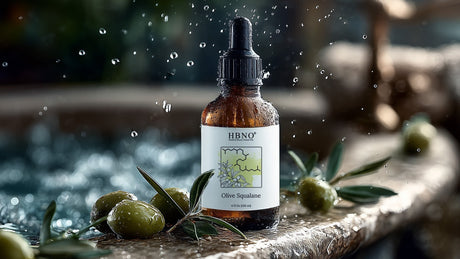In the evolving world of livestock management, producers are constantly seeking natural alternatives to improve animal health, performance, and welfare. Among these solutions, Oregano Oil for dogs, especially in its concentrated form as Oregano Essential Oil, has gained considerable attention for its impressive range of biological activities.
As consumer demand for antibiotic-free and naturally raised meat and dairy grows, the spotlight has turned to phytogenic feed additives. One standout botanical in this space is oregano, offering both powerful Oregano Oil Benefits and practical functionality in commercial feed programs.
Key Uses of Oregano Oil in Animal Feed
One of the primary Uses of Oregano Oil in Animal Feed may be its strong antimicrobial activity. It effectively suppresses harmful bacteria such as Escherichia coli, Salmonella, and Clostridium perfringens, all of which can compromise gut health and animal performance.
In dairy calves, oregano oil added to milk replacer or starter feed has been shown to reduce the incidence of scours, improve gut flora balance, and increase average daily weight gain. In poultry operations, it enhances gut integrity, reduces pathogen load in the intestines, and contributes to better meat quality by limiting bacterial contamination during processing.
In swine production, oregano oil supports intestinal health, particularly during critical stages such as weaning. Studies show piglets consuming feed supplemented with Oregano Essential Oil gain weight more efficiently, with fewer gastrointestinal disorders and less need for medicinal intervention.
Oregano Oil Benefits for Immunity and Growth
The immunomodulatory effects of Oregano Oil are also significant. Oregano's key active components enhance the immune response by boosting immunoglobulin levels (IgA, IgG, IgM), helping animals resist infections naturally.
Antioxidant and Anti-inflammatory Properties
Beyond antimicrobial and immunological advantages, Oregano Oil Benefits also include robust antioxidant properties. These antioxidants may help combat oxidative stress-a common consequence of environmental stress, disease exposure, or high-performance production systems.
Carvacrol and thymol work synergistically to protect cells from free radical damage, contributing to better organ function and metabolic efficiency. This is especially important in poultry and swine, where high-growth rates can induce oxidative strain.
Oregano oil's anti-inflammatory activity is equally valuable. It may help reduce intestinal inflammation, promoting better nutrient absorption and gut morphology. Animals with healthier guts not only grow faster but are also more resilient to dietary or microbial challenges.
Supporting Rumen Health and Digestion
In ruminant animals like dairy calves and beef cattle, Oregano Essential Oil is being evaluated for its ability to modulate rumen fermentation. Supplementation can increase the production of beneficial volatile fatty acids like propionate, which supports energy metabolism and growth.
Unlike ionophores or chemical feed additives, oregano oil can achieve these effects without posing the risks associated with synthetic compounds. When used appropriately, it may help maintain stable rumen pH, reduce methane emissions, and optimize microbial balance-all of which contribute to improved digestion and performance.
Additionally, oregano oil may reduce the population of protozoa in the rumen, indirectly lowering ammonia production. This can lead to better nitrogen utilization and lower environmental impact, supporting sustainable animal agriculture.
Application and Dosage in Livestock Diets
The Uses of Oregano Oil in Animal Feed vary by species, but effective dosage ranges have been established through both academic research and field trials. In calves, doses ranging from 2-6 mL per day in milk replacer or 0.1% inclusion in starter feed have been associated with improved gut health and weight gain.
In broiler chickens, oregano essential oil is often included at 100-300 mg/kg of feed. Higher doses can be used temporarily during periods of stress or disease challenge. In swine, oregano oil blends are added at levels of 0.1-0.5%, often combined with other essential oils for synergistic benefits.
It is important to source high-quality, food-grade oregano oil and to dilute it properly before mixing it into feed or water. Because essential oils are highly concentrated, improper use can lead to reduced feed intake or digestive irritation.
Economic and Production Benefits
Using essential oils for animal feed offers tangible economic advantages. By reducing the need for antibiotics and therapeutic interventions, producers can cut healthcare costs while meeting consumer demand for naturally raised products.
In addition, better weight gain and feed conversion rates translate to more efficient operations. In organic and antibiotic-free production systems-where alternative health strategies are essential-oregano oil provides a reliable, compliant solution.
Producers using oregano oil report not only healthier animals but also improved product quality. Poultry raised on oregano-supplemented feed often have reduced spoilage and longer shelf life, thanks to the oil's natural preservative effect.
Final Thoughts
The growing body of research supporting Oregano Oil Benefits underscores its place in the future of animal nutrition. As a natural antimicrobial, immune booster, antioxidant, and performance enhancer, Oregano Essential Oil offers a comprehensive solution to many challenges in livestock production.
By understanding and applying the Uses of Oregano Oil in Animal Feed, producers can create healthier herds, improve productivity, and align with evolving consumer expectations. Sourcing HBNO Bulk Oregano Essential Oil ensures consistent quality and supply for large-scale feed applications.
Build your brand identity with a Private Label Product Specialists dedicated to growth and product innovation.
Citations:
- https://link.springer.com/article/10.1186/s42523-020-00064-2
- https://www.sciencedirect.com/science/article/pii/S1751731121002081
- https://japsonline.com/abstract.php?article_id=575
- https://www.sciencedirect.com/science/article/pii/S002203021830153X
- https://www.sciencedirect.com/science/article/abs/pii/S0093691X04001529
- https://dergipark.org.tr/en/pub/ajbiol/issue/58508/842761
- https://www.frontiersin.org/journals/microbiology/articles/10.3389/fmicb.2018.02329/full
- https://www.mdpi.com/2076-2615/12/18/2480
- https://www.sciencedirect.com/sciehttps://sciendo.com/article/10.2478/aoas-2021-0068nce/article/abs/pii/S0278691520304762
- https://academic.oup.com/jambio/article-abstract/116/5/1149/6716914




